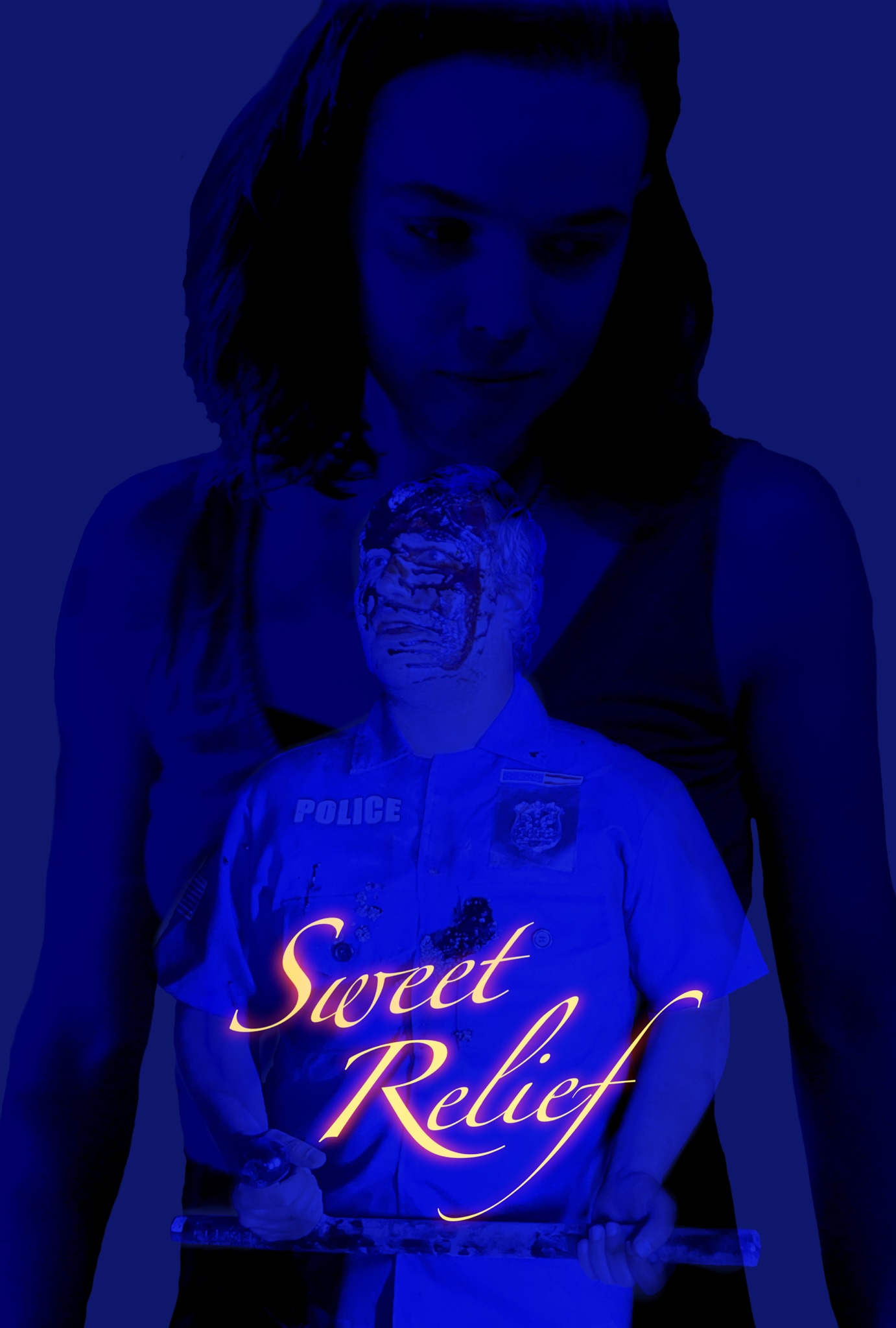

In the era of TikTok challenges, Instagram influencers, and the steady stream of bullshit your aunt posts on Facebook, the concept of the online world and how it can shape our behavior and worldview is ripe as a wellspring for horror. Nick Verdi’s Sweet Relief voyeuristically lifts up the rock of suburban America in the ‘20s and shines a light there reveal all of the weird unsavory darkness brewing there, both leading to and feeding off the constant flow of content we now have thanks to social media. It’s a little slice of fucked Americana, Napoleon Dynamite if left to ferment in a dank basement, full of archetypes that we’ve all run into at some point in our lives. It’s darkly hilarious and deeply chilling.

Sweet Relief takes place in a small New England town in the grip of an online challenge known as “Sweet Relief”, in which users summon a being known as “The Sweet Angel” by telling it who they would kill if given the chance. Think Bloody Mary for the digital age. Meanwhile, in a sort of parallel narrative in the same town, a young woman bears witness to a possible murder by a local cop wannabe. These two storylines, working almost like vignettes, weave through the grimy underbelly of small-town America to a violent and bloody climax.
This is a film rife with commentary on how social media has opened the floodgates for anyone with an agenda to push that agenda as free as they please. Now, all cards on the table, I see social media as something of a positive force: it brings people together, it gives people who might not do too well in crowds a chance to socialize, and it’s a wonderful way to see the world. It’s also extremely dangerous, especially to a generation that doesn’t understand the Internet and how it’s almost entirely unregulated when it comes to truthfulness (Boomers) and a generation raised entirely in the shadow of social media who are simply used to it and blind to how awful it can be in the wrong hands (Gen Z). Verdi smartly portrays an outlandish hyperbolic depiction of teens committing atrocious acts to appease the Sweet Angel while contrasting it with the very real-world phenomenon of Boomers believing insane conspiracy theories simply because they saw it on Facebook. The former is typical horror movie stuff and kind of serves as the salt before the tequila that is the far more unsettling concept of misinformation.
Verdi fills his film with tremendously fleshed out characters, the standouts being Alison Leigh and B.R. Yeager. Leigh portrays Jess, a nurse who inadvertently witnesses a killer burying a body while out on a hike with her boyfriend. While the film seems to set Jess up as a damsel in distress, she is arguably the only competent person in the entire film who isn’t filled with insidious intent. While her boyfriend crumples like an old dollar bill in the face of the man influencing his mother’s delusional beliefs, Jess confronts the man she believes is a child killer and goes toe to toe with him repeatedly. Leigh gives Jess a quiet believable confidence, quite literally stalking the man she thinks is a killer to be certain before taking any action. She’s not some cartoonish badass; instead, she’s more like a Nancy Drew who can handle herself. Meanwhile, Yeager portrays the perfectly insufferable Gerald, a wannabe cop who seduces junior high kids with stories about the glories of being a small-town cop. Gerald is a low-level police informant who is despised by his handler. You know the type: in high school he would’ve been the guy who wore a calculator watch, was a volunteer firefighter, and bragged about going into the marines right after graduation but would then back out because he had bad knees. He says ‘copy’ to indicate he understands what you’re saying and thinks all women are bitches for not thinking he’s god’s gift to them. He’s also at very least complicit in several murders around town, so there’s that. Underneath the bargain bin Barney Fife exterior, Gerald is violent and unhinged, mercilessly attacking anyone who gets in his way. Yeager delivers us a character that is disarmingly boorish, effortlessly channeling every small-town creep who brags about their sexual exploits all the while openly despising women, all the while concealing a hair trigger for brutality. He is the picture of the “banality of evil”: utterly empty and boring and ordinary while also completely evil.
Sweet Relief is a dryly and quietly comedic film for much of it’s run time, drawing that comedy from the deadpan framing of a very serious issue. Punctuated with bouts of violence, it will absolutely draw you into the small world it has created. It’s evocative of an archetypical small town far too many people will relate to, and I suspect some of those will relate even more with the junior high kid that Yeager’s character is possibly grooming for god knows what. It’s a necessary depiction of where we are a society when it comes to the mutability of truth and the ceaseless flow of unreality we’re exposed to daily.




